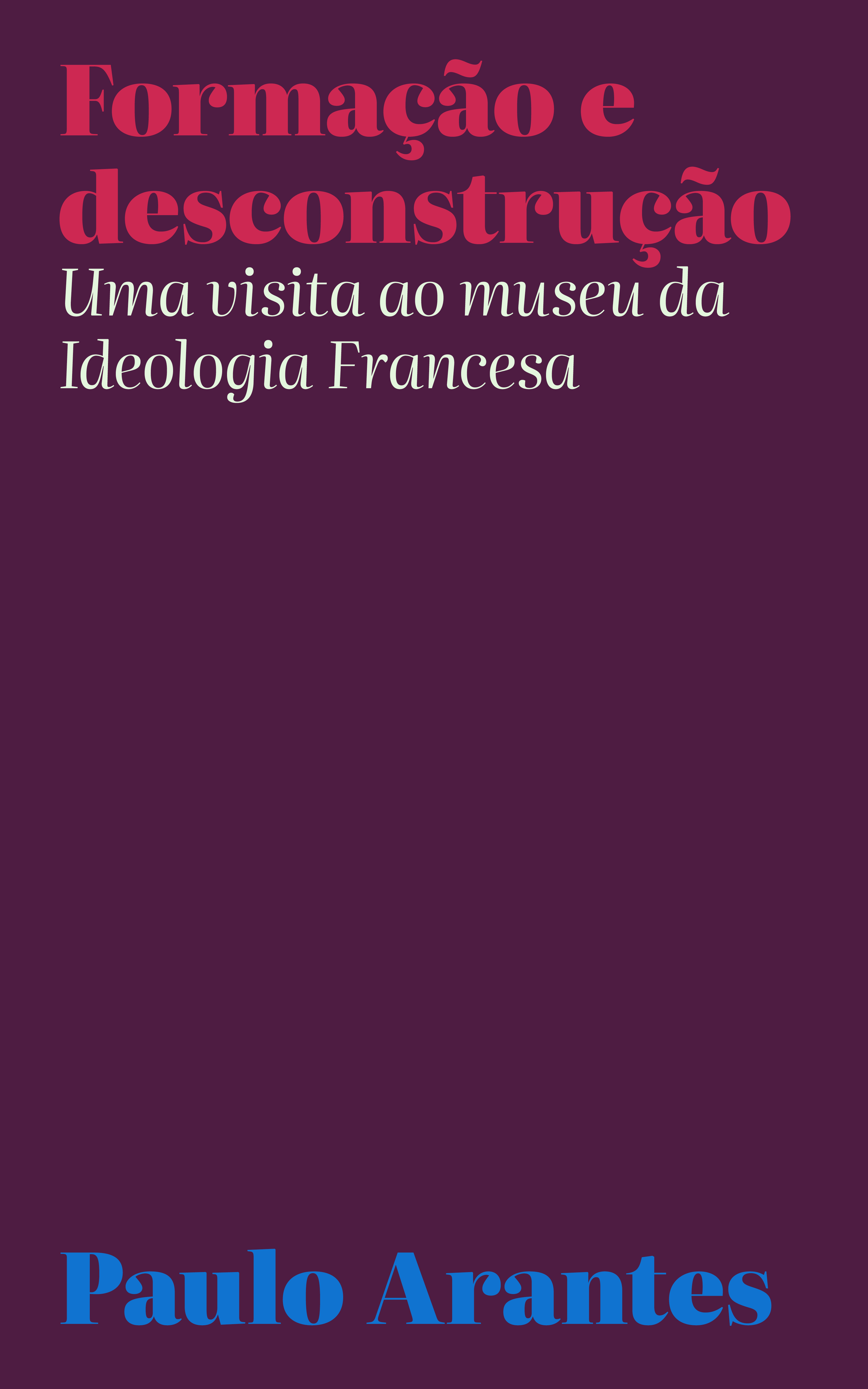Formation and Deconstruction
A Visit to the Museum of French Ideology
2021
Synopsis
The texts collected in this volume, written between 1989 and 1995, mark the end of a phase in Paulo Arantes' thought, a phase he traces back to the early 1970s. It was then that he first conceived, under the label of the "ABC of German misery," a project to redescribe the critique of ideology through the lens of the intellectual experience typical of peripheral national realities. It might be beneficial to start by clarifying what these texts are not, given that the subject could lead to some misunderstandings. Indeed, all of them, to varying degrees, revolve around the hypothesis of a "French Ideology" within the scope of post-war Western thought: an original creation by Arantes, albeit supported by one or two precedents, whose significance will need to be investigated in some detail. For the moment, limiting ourselves to its undeniable evocative power, the first misunderstanding would then be the expectation of finding here a humanist-materialist protest against the Parisian Destruction of Reason in the post-Sartrean era of French thought, and subsequently, Franco-American thought: something akin to a transcendent critique of the now-infamous "postmodern left." This is far from the author's intentions. Indeed, Arantes' reflection possesses, throughout its entirety, a materialist core in the most basic and never abandoned sense of the term, evident in the constant search, against the socially necessary trend towards the autonomization of ideas, for "a system of historically specified mediations," still focused on the negative gravitational force of material production relations. In this sense, "the elucidation of repressed and obscured conflicts" continues to be advocated as a standard of critique in opposition to the aestheticizing "shiver" (Foucauldian, in this case) "faced with the indistinction of ideological formations without a reverse side." However, this elementary layer is a starting point, not a destination; precisely, the problem of ideology critique can be seen as a privileged angle to reconstruct Arantes' trajectory towards an original specification of its meaning based on spatial coordinates—peripheral displacements—and temporal ones—historical transformations of the world-system. Anticipating: this involves not only classical objections (but not always absorbed) to the mechanical reductionism of the economistic determination of culture but also questioning that linear-progressive confiscation of historical materialism, which had been associated with mechanicism since the days of the Second International, and which undoubtedly constitutes, along with certain local implications, one of the main targets of Arantes' critique—let's say—from 1964 to 2018.
(Excerpt from the Afterword by Giovanni Zanotti)
Keywords: Bento Prado Jr., Deconstructive Turn, American Philosophy, Foucault, French Theory, Gérard Lebrun, French Ideology, Kojève, Lacan, Rorty, Brazilian Literary Tradition, Literary Avant-Garde.

Series
Categories
License

This work is licensed under a Creative Commons Attribution-NonCommercial-NoDerivatives 4.0 International License.


